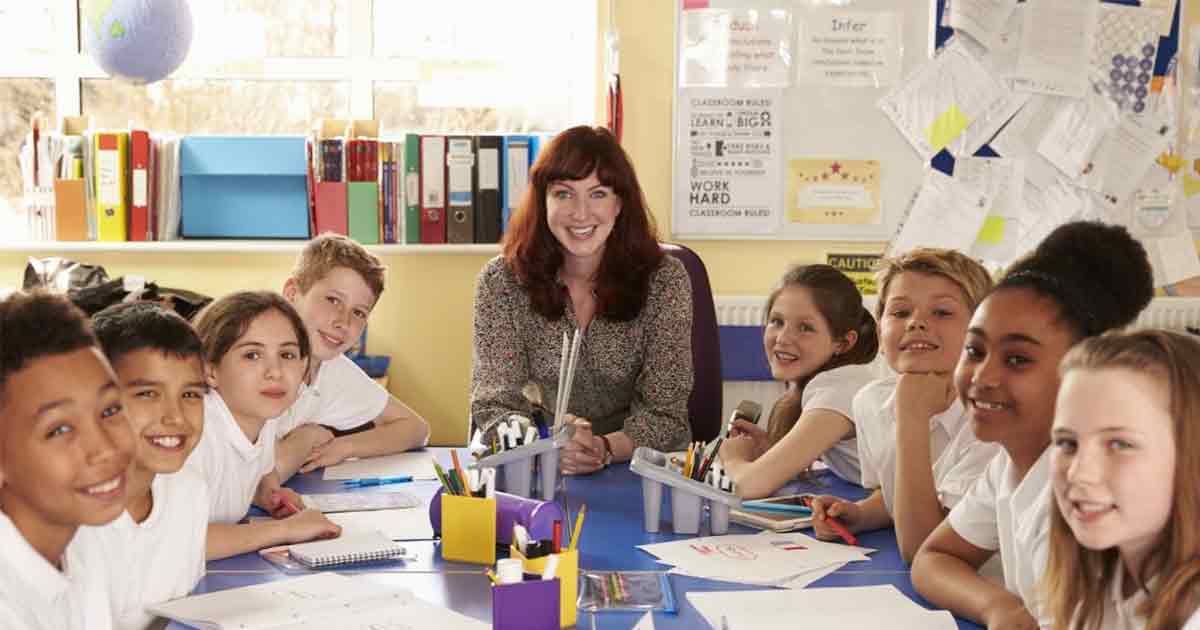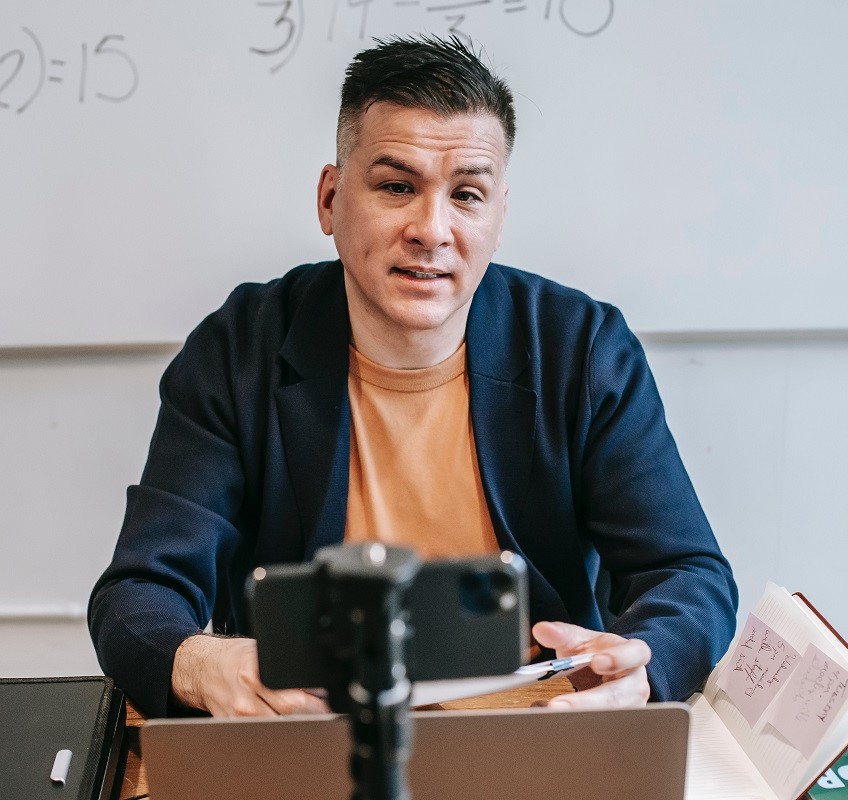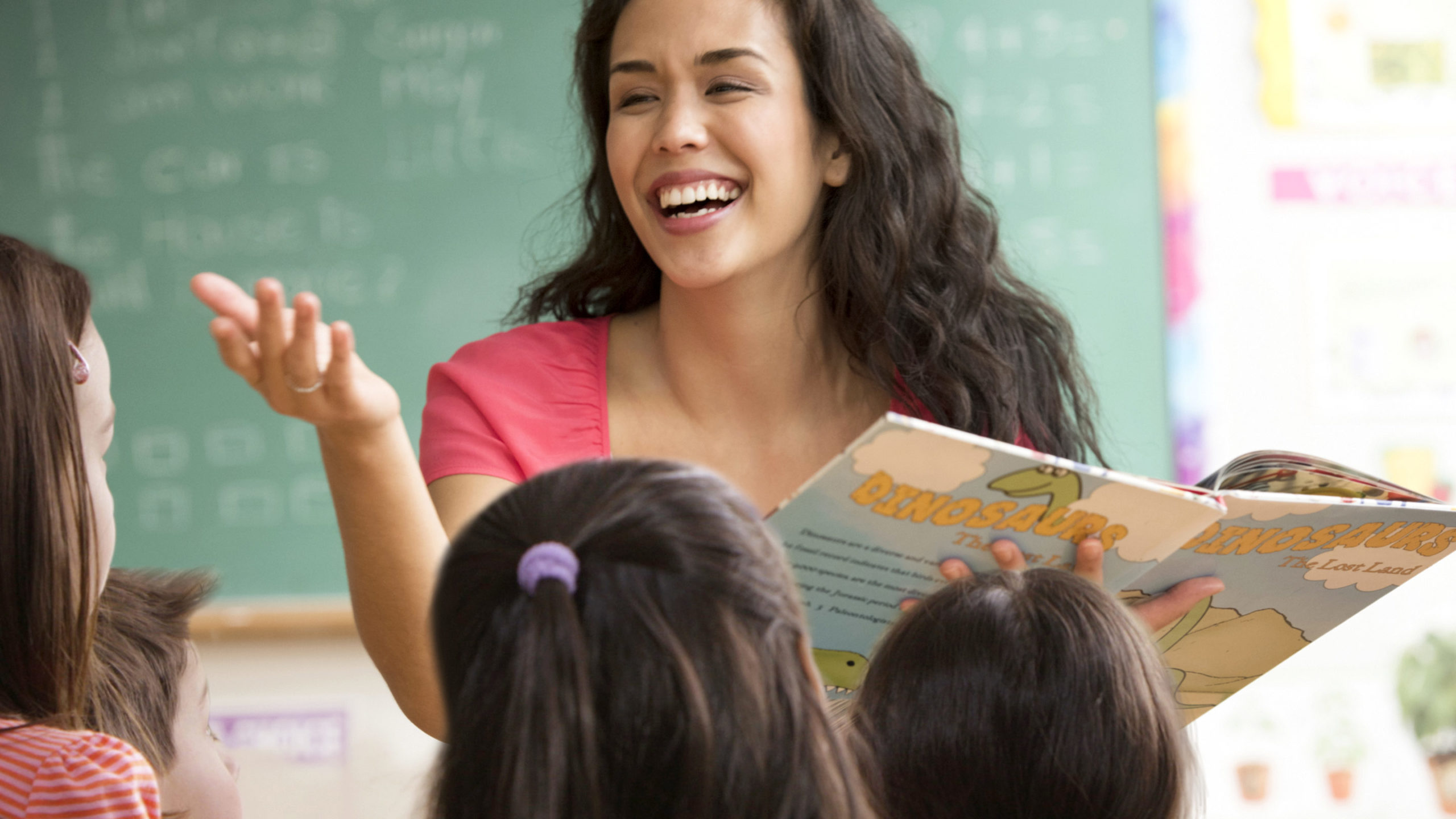A great teacher will never settle for “good enough.” They seek to inspire their learners by providing them with challenging tasks that will stretch their abilities and keep them engaged. If teachers expect more from their students than simply doing well on tests, then they are likely to fail in delivering a truly engaging learning experience.
Good teachers know that there is always room for improvement. They are constantly striving to improve their methods of instruction and ensure that every lesson they deliver leaves their students feeling challenged, excited about the material, and eager to continue. It’s easy to fall into bad habits when you begin teaching, but a good teacher won’t allow such things to happen.
They also know how to motivate their students to make sure they don’t lose interest or become discouraged during tough times. In addition, a good teacher will be able to help their pupils develop critical thinking skills. This means that they should try to find answers to questions that are beyond the scope of what is being taught.
What Is Meant by Good Teaching?
Teaching is one of the most important jobs that you can have. If you want to be successful at your job, you should learn how to teach well.
There are many different ways to become a better teacher. The first thing that you need to understand is that good teachers don’t just tell their students what to do. Instead, they help them figure out the answers on their own.
You should also make sure that you’re always thinking about new ideas and methods of teaching. You shouldn’t fall into a rut with the same old techniques and strategies.
Finally, you should make sure that you use the right tools for your lessons. This includes things like lesson plans and assessment tests.
If you want to get the best results from your classes, then you’ll need to work hard to improve your skills as a teacher.
What Is Good Teaching Skills?
Teachers should ideally be good at physical, verbal, and written communication. Strong verbal communication means that teachers make their lesson materials and expectations clear while presenting concepts in a way that students can understand.
Communication. The ability to effectively communicate is perhaps the most important skill for teachers to possess. Simply understanding the subject material is useless if you can’t communicate it in a way that engages students and is easy for them to understand.
Here are the top teaching skills:
- Communication.
- Creativity.
- Enthusiasm.
- Confidence.
- Dedication.
- Conflict resolution.
- Organisation.
How can you improve your teaching skills?
Here are some tips to help you improve your teaching skills.
- Always be prepared. You should never have to worry about being unprepared when you teach a class. If you don’t know the answer to any question, you shouldn’t hesitate to ask the students.
- Be enthusiastic. When you’re excited about the subject that you’re teaching, you’ll find yourself more relaxed. This will make you look better on stage, and it will also help you connect with the audience.
- Keep an open mind. Remember, you are learning from them, so try to view everything through their eyes.
- Make eye contact. Don’t just stare at your notes or the chalkboard. Look around and talk to your students.
- Ask questions. Students love it when teachers ask questions because they feel like they can learn something new.
- Encourage participation. Give your students a chance to share what they’ve learned, even if you disagree.
- Smile. Even though this might seem obvious, smile. It makes people want to listen to you.
- Use humor. Humor helps keep things light, which is always a good thing. Plus, it’s fun for everyone.
- Try not to lecture. Lectures are boring.
What Is the Best Teaching Method for Students?
Teaching is a very important job. A good teacher will be able to make sure that his/her students learn everything he/she teaches them. However, you can never really know how well your teaching skills are until you teach someone else.
There are many different ways of teaching. For example, you can use the following methods:
- Lectures
- Demonstrations
- Assignments
- Homework
- Tests
- Discussion groups
- Question and answer sessions
- Group projects
- Independent study
- Exams
- Field trips
- Workshops
- Seminars
- Presentations
- Games
- Roleplays
- Simulations
- Contests
- Quizzes
- Projects
- Classroom observations
- Writing assignments
- Self-assessment
- Feedback
- Teamwork
- Individual presentations
- Paper writing
- Project reports
- Research papers
- Reports on literature
- Creative thinking exercises
- Problem-solving activities
- Artistic creations
- Music compositions
- Computer programs
- Computer games
- Computers and mathematics

What Are the 7 Principles of Good Teaching?
In this article, you will learn more information on how to become a great teacher. You can use these tips to improve your teaching skills.
- Good Practice Encourages Student-Faculty Contact
Frequent student-faculty contact in and out of classes is the most important factor in student motivation and involvement. Faculty concern helps students get through rough times and keep on working. Knowing a few faculty members well enhances students’ intellectual commitment and encourages them to think about their values and plans.
- Good Practice Encourages Cooperation Among Students
Learning is enhanced when it is more like a team effort than a solo race. Good learning, like good work, is collaborative and social, not competitive and isolated. Working with others often increases involvement in learning. Sharing one’s ideas and responding to others’ reactions improves thinking and deepens understanding.
- Good Practice Encourages Active Learning
Learning is not a spectator sport. Students do not learn much just sitting in classes listening to teachers, memorizing prepackaged assignments, and spitting out answers. They must talk about what they are learning, write about it, relate it to past experiences, and apply it to their daily lives. They must make what they learn part of themselves.
- Good Practice Gives Prompt Feedback
Knowing what you know and don’t know focuses on learning. Students need appropriate feedback on performance to benefit from courses. In getting started, students need help in assessing existing knowledge and competence. In classes, students need frequent opportunities to perform and receive suggestions for improvement. At various points during college, and at the end, students need chances to reflect on what they have learned, what they still need to know, and how to assess themselves.
- Good Practice Emphasizes Time on Task
Time plus energy equals learning. There is no substitute for time on task. Learning to use one’s time well is critical for students and professionals alike. Students need help in learning effective time management. Allocating realistic amounts of time means effective learning for students and effective teaching for faculty. How an institution defines time expectations for students, faculty, administrators, and other professional staff can establish the basis for high performance for all.
- Good Practice Communicates High Expectations
Expect more from students and you will get it. High expectations are important for everyone–for the poorly prepared, for those unwilling to exert themselves, and for the bright and well-motivated. Expecting students to perform well becomes a self-fulfilling prophecy when teachers and institutions hold high expectations for themselves and make extra efforts.
- Good Practice Respects Diverse Talents and Ways of Learning
There are many roads to learning. People bring different talents and styles of learning to college. Brilliant students in the seminar room may be all thumbs in the lab or art studio. Students rich in hands-on experience may not do so well with theory. Students need the opportunity to show their talents and to learn in ways that work for them. Then they can be pushed to learn in new ways that do not come so easily.
How Can We Improve Our Teaching?
Teaching is one of the most important jobs that you’ll ever have. If you’re looking to become an effective teacher, then you should start by learning how to teach well. This article will give you a few tips for improving your teaching skills.
You need to be able to explain things clearly. You should make sure that you know exactly what you want students to learn.
You also need to help them understand the material so that they can retain it. To achieve these goals, you need to use lots of examples.
If you’re a new teacher, then you might feel nervous when you first meet with your class. Don’t worry! Just remember to stay calm and relaxed.
Another thing that you should do is to get feedback from your colleagues. They’ve likely been in the same position as you, and they may be willing to share some advice.
Finally, you should keep your lessons interesting. Students will only enjoy their classes if they find the information engaging. So, try to avoid boring topics or lessons that seem dull.
These are just a few ideas for helping you to improve your teaching. There are many other things that you can do, too.
What Are the Best Teaching Practices?
Teaching is a very important aspect of education. After all, teachers have an impact on their students. So what should you look for when you’re choosing a teacher? And how can you make sure that your child gets the best learning experiences?
When you choose a teacher, you want to consider several factors. First, you need to figure out whether the person who will be teaching your children is qualified. You also need to determine if he or she has enough experience in the field.
You should ask yourself questions like: How much training does this person have? Is the person certified by the state? Do they hold any certifications from professional organizations? Are they members of associations that represent the profession?
In addition, you should take a close look at the curriculum that your potential teacher uses. If you don’t feel comfortable with the way that your kids are being taught, then you might want to look for another option.
You must do your homework before you hire someone to teach your children. This will help ensure that you get the most out of your lessons and that your children learn effectively.


 Lucas Green
Lucas Green